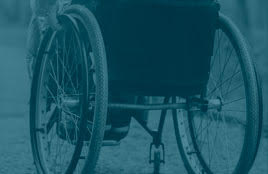Have you ever noticed that, when it comes to car insurance advertisements, they are always telling you to buy their insurance not because it’s the best, but because it’s the cheapest? Flo, the sassy spokeswoman for Progressive Insurance, is always proclaiming that her rates are the cheapest. The cute little green gecko from Geico says that he will save you 15% or more on your car insurance.
It’s one thing for the buyer to want to shop for the less expensive product. It’s another thing when the seller actually wants to sell you their cheapest product. Trust me. Progressive and Geico have more expensive insurance policies to sell. But they want you to buy the cheapest coverage. What’s wrong with this picture?
I mean, seriously, when you walk into Best Buy do they try to sell you the 14-inch black-and-white TV because it’s the cheapest model they have? Does the waitress at your favorite restaurant recommend the hot dog over the filet mignon because it’s the cheapest meal on the menu?
I’m reminded of my favorite line from the movie “Private Benjamin”, starring Goldie Hawn. It’s the one where she says, “If someone sells you a diamond ring for ten cents, then you are the proud owner of a diamond that is worth ten cents.” (Well, she said something like that.)
Well, here’s the thing (and remember, it’s hard to take a complex legal concept and explain it in a few short sentences). In Pennsylvania, we have two types of insurance: full tort and limited tort. If you select full tort, you can sue for all your harms and losses if your car is struck by a negligence driver. If you select limited tort, and you are injured by a negligent driver, you can only sue for your economic losses (medical expenses and lost wages). Oh, you’re writhing in pain and cannot do anything but lie on the floor? Sorry, with limited tort you can’t sue for that unless you meet certain thresholds.
Limited tort insurance is cheaper by a few hundred dollars than full tort. The insurance industry would rather you buy limited tort coverage than full coverage. They really don’t make their money on the premiums you pay; rather, they make money when you agree to limit your right to sue for pain and suffering. By not compensating you fully for your injuries, they can keep a lower reserve on hand to pay claims, and instead use the money to invest—which is really where they make their profits.
Consequently, it pays (pardon the pun) to remember what “Private Benjamin” said—“When you buy the cheapest motor vehicle insurance, you are basically saying that your life is cheap and not worth fully insuring.” (Ok maybe Goldie Hawn didn’t say that in “Private Benjamin”, but she probably said it in “First Wives Club.”)






